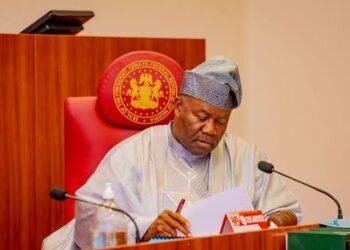The Court of Appeal sitting in Abuja on Wednesday, May 11, 2022, set aside the judgment of the Federal High Court in Umuahia which voided the provision of Section 84(12) of the Electoral Act 2022.
In a judgment, a three-member panel of the court headed by Justice Hamma Akawu Barka held that the Federal High Court Umuahia had no jurisdiction to have entertained the case because the plaintiff, Nduka Edede, lacked the locus standi to have filed the suit in the first place.
The appellate court added that Edede did not establish any cause of action to have warranted his approaching the court on the issue because he did not establish that he was directly affected by the provision.
The Court of Appeal struck out the suit marked: FHC/UM/CS/26/2022 which Edede filed before the Umuahia court.
The court however, reasoned that the provision was unconstitutional on the grounds that it violates Section 42 (1)(a) of the constitution and denies a class of Nigerian citizens their right to participate in election.
President Muhammadu Buhari had while signing the amended Electoral Act on February 25, 2022, said he would approach the National Assembly to amend the provision in 84 (12) on the ground that it violated the constitution.
The President had said: “Section 84 (12) constitutes a disenfranchisement of serving political office holders from voting or being voted for at Conventions or Congresses of any political party, for the purpose of the nomination of candidates for any election in cases where it holds earlier than 30 days to the National Election.”
According to Section 84 (12): “No political appointee at any level shall be voting delegate or be voted for at the Convention or Congress of any political party for the purpose of the nomination of candidates for any election”.
The consequences of an infraction of the section is set out in the following subsection 84 (13) thus: “Where a political party fails to comply with the provision of this Act in the conduct of its primaries, its candidate for election shall not be included in the election for the particular position in issue.”
The implication of this is that presidential hopefuls who are political appointees would be disqualified from the presidential race if they fail to resign from their political positions before entering into the presidential race.
Breaking down political processes, a leading human right lawyer in Nigeria, Inibehe Effiong, explained that all declared contestants are just ‘presidential aspirants’ seeking to be sponsored by a party. After party primaries, the emerged representatives can then officially be said to be ‘running for president’
Some political appointees currently aspiring for president are:
1. Minister of State for Education, Chukwuemeka Nwajiuba
2. Minister of Transportation, Rotimi Amaechi
3. Minister of Labour and Productivity, Chris Ngige
4. Central Bank of Nigeria (CBN) Governor, Godwin Emefiele
5. Minister of Science, Technology and Innovation, Ogbonnaya Onu
With the order of the Appeal Court, these aspirants (who happen to all be members of the All Progressive Congress) are at risk of disqualification from the presidential race, should they win their party primaries.
•Additional story by Pulse










